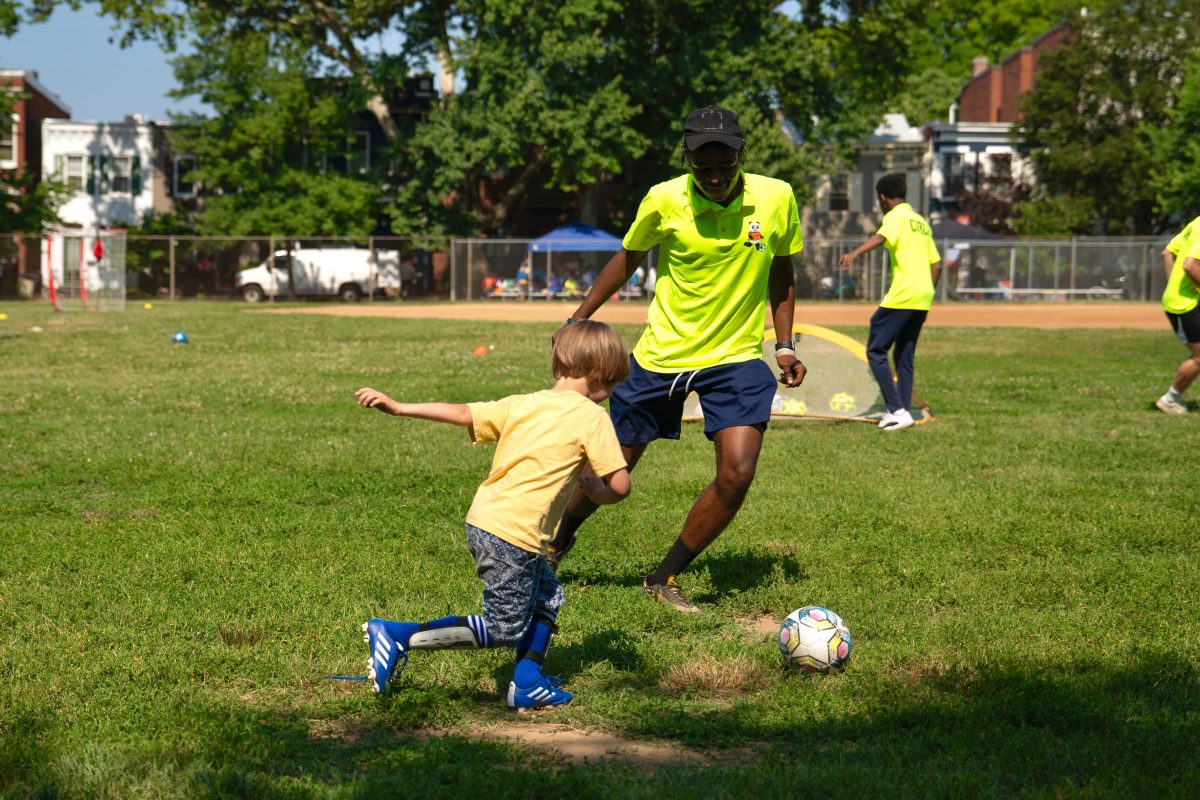Hey, young athletes and parents! Did you know that soccer isn’t just a fun game, but also a fantastic way to build important physical skills? Playing soccer helps kids develop coordination, balance, and fine motor skills, which are crucial for their overall growth and development. Let’s dive into how kicking, dribbling, and passing a soccer ball can make you stronger, more agile, and better coordinated.
Coordination: The Key to Smooth Movements
Coordination is the ability to use different parts of your body together smoothly and efficiently. Soccer is an excellent sport for developing coordination because it requires players to use their feet, legs, and sometimes even their heads in precise ways. Here’s how soccer enhances coordination:
- Dribbling: When you dribble the ball, you need to control it with your feet while looking up to see where you’re going. This multitasking improves hand-eye (or rather, foot-eye) coordination.
- Passing: Accurate passing involves timing and precision. When you pass the ball to a teammate, you need to judge the right moment and direction, which enhances overall body coordination.
- Shooting: Scoring a goal requires coordinated effort between your eyes, feet, and body to aim and strike the ball accurately.
Balance: Staying Steady on Your Feet
Balance is the ability to stay upright and steady, and it’s a crucial skill in soccer. Good balance helps players move quickly and change direction without falling. Soccer drills that improve balance include:
- Running and Changing Direction: Soccer involves a lot of running and quick changes in direction. These movements help strengthen the muscles needed for balance.
- Jumping and Landing: Heading the ball or jumping to catch a high pass requires you to jump and land stably. This improves your balance and strengthens your core muscles.
- Standing on One Leg: Simple drills like standing on one leg while controlling the ball help improve static balance. Try standing on one leg and passing the ball to a friend!
Fine Motor Skills: Precision in Every Move
Fine motor skills involve the use of small muscles in your hands and feet for precise movements. Soccer is great for developing these skills, especially in young children. Here’s how:
- Toe Taps: Tapping the top of the ball with alternating feet improves foot dexterity and control.
- Ball Traps: Trapping the ball with different parts of your foot (inside, outside, sole) helps refine the precision of your movements.
- Squeezing Through Small Spaces: Maneuvering the ball through a crowded field or through cones sharpens your ability to control small, precise movements.
Benefits Beyond Soccer
The coordination, balance, and fine motor skills developed through soccer extend beyond the field. These skills are essential for many daily activities and other sports. Improved coordination and balance can help in activities like riding a bike, playing other sports, and even in school tasks that require fine motor control, such as writing and using scissors.
Conclusion
Playing soccer is a fun and effective way to develop important physical skills that will benefit you in many aspects of life. Whether you’re dribbling through cones, shooting for the goal, or just playing a game with friends, you’re building coordination, balance, and fine motor skills that will help you become a better athlete and more confident in your abilities.
Do you have any favorite soccer drills or tips for improving coordination and motor skills? Share them in the comments below and let’s keep the conversation going. Happy playing!


